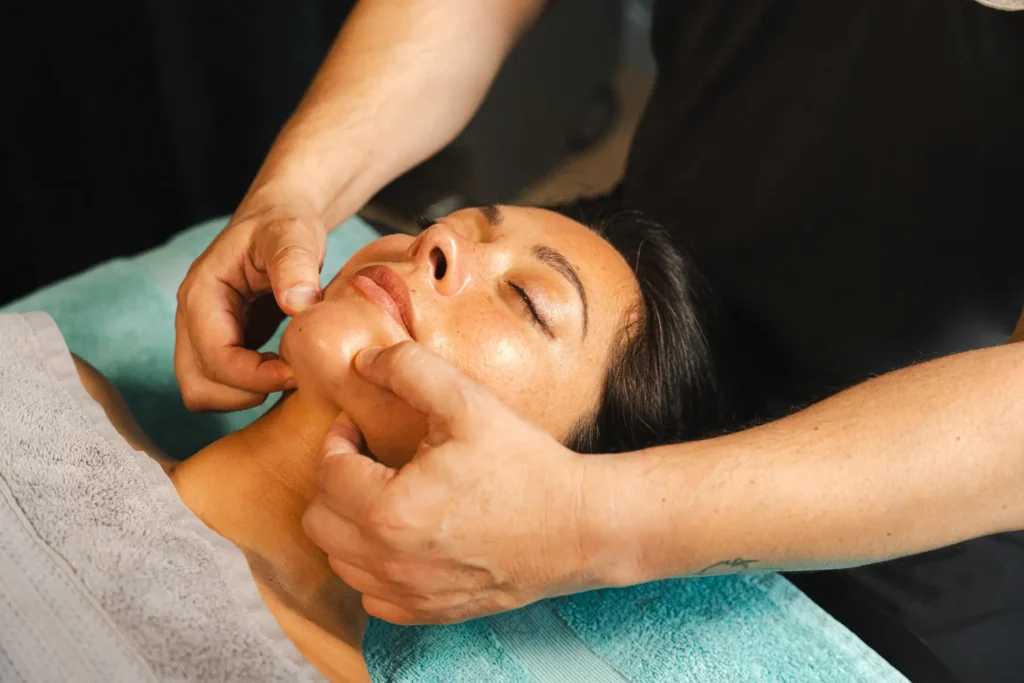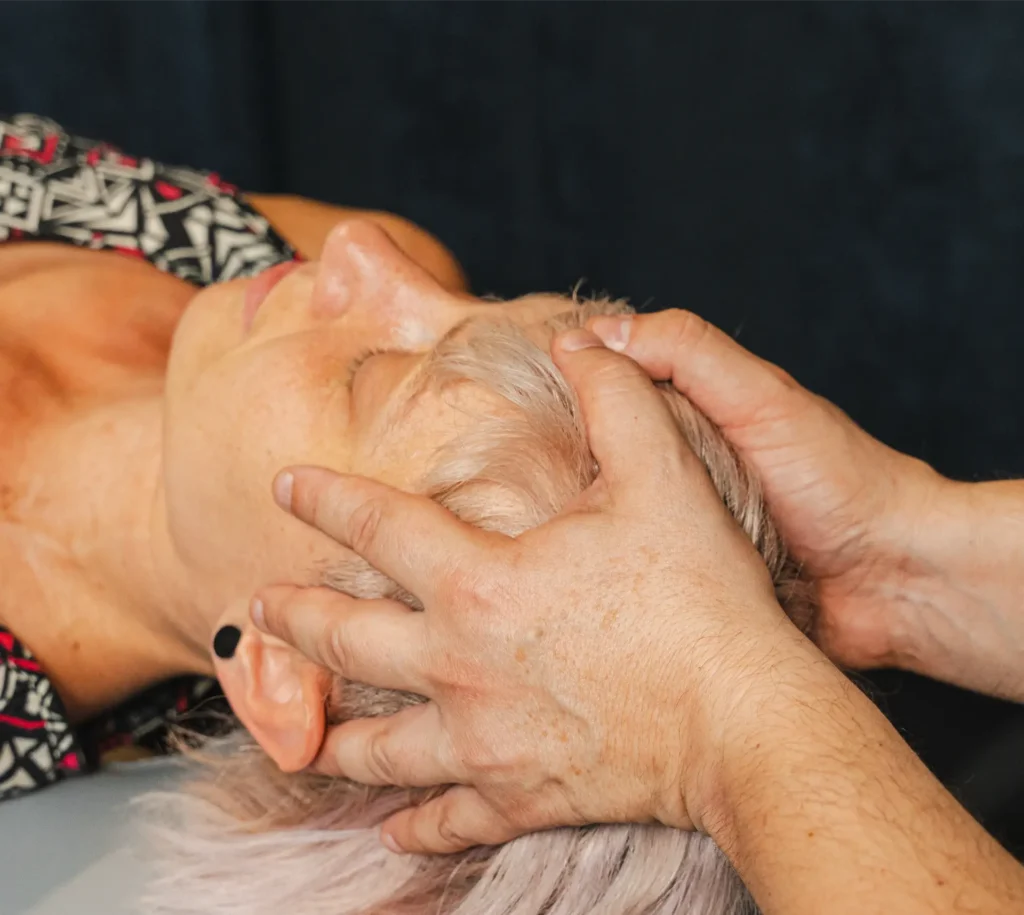TMJ Physiotherapy London
Physiotherapy
TMJ Physiotherapy in London: What to Expect at Your Appointment
TMJ physiotherapy at HITO, led by Alessio Barone, goes beyond conventional treatment. We take a holistic approach, exploring the deep interconnection between body, mind, and energy. Each session begins with a detailed assessment of the jaw, neck, and head, followed by postural analysis to understand how jaw alignment may influence the rest of the body—including the feet, internal organs, and eyes.

- Myofascial Release: Using gentle intra- and extra-oral techniques to release muscle tension in the jaw, neck, and scalp, restoring joint mobility.
- Acupuncture: Targeting key points on the face or body, especially related to the stomach meridian, to relieve jaw tension, support digestion, and reduce fatigue.
- Craniosacral Therapy: Gentle manipulations to release deep tension, restore cranial rhythm, and calm the nervous system.
- Visceral Therapy: Releasing abdominal restrictions stretching the internal organs, often tied to TMJ discomfort.
- Energy Healing: Rebalancing energy centres (chakras) associated with emotional expression and digestive processing.
- Breathwork, Meditation, Mindfulness & Journaling: Encouraging stress release and greater self-awareness for holistic healing.
Understanding TMJ Disorders and Jaw Pain
- Jaw Misalignment & Bruxism: Misaligned bite or teeth grinding places excessive stress on the jaw joint.
- Muscle Tension: Tightness in the jaw, neck, and shoulders can limit mobility and trigger pain.
- Stress & Emotional Factors: Emotional tension can manifest physically as clenching or grinding. As the saying goes, what we don’t digest emotionally, we may “chew on” mentally—resulting in jaw tension.
- Postural Imbalances: Poor head and neck alignment can increase TMJ strain—and vice versa, a misaligned TMJ can throw off overall posture.
- Digestive & Visceral Health: Many clients with TMJ dysfunction also experience acid reflux, stomach tightness, shallow breathing, and elevated ribs—signs of systemic imbalance.
- Energy & Meridian Blockages: In Chinese Medicine, TMJ issues relate to the stomach (digestion of food and experiences) and gallbladder (digesting fats and overthinking with frustration) meridians. In Ayurvedic traditions, they may link to the Solar Plexus (personal power and life balance), Third Eye (overthinking), or Throat (self-expression).


Common Symptoms of TMJ Dysfunction
- Jaw pain or tenderness
- Clicking, popping, or locking of the jaw
- Difficulty chewing or swallowing
- Headaches and facial pain
- Earaches, neck and shoulder discomfort
- Dizziness and imbalance
- Misalignment in how upper and lower teeth fit together
TMJ dysfunction can present with a wide range of symptoms that affect daily life, including:
Book Your TMJ Physiotherapy Appointment in London
If you’re dealing with persistent jaw pain, clicking, or difficulty opening your mouth, our specialist TMJ Physiotherapy in London can help relieve discomfort and enhance your quality of life.
Book an appointment today and take the first step toward recovery.
